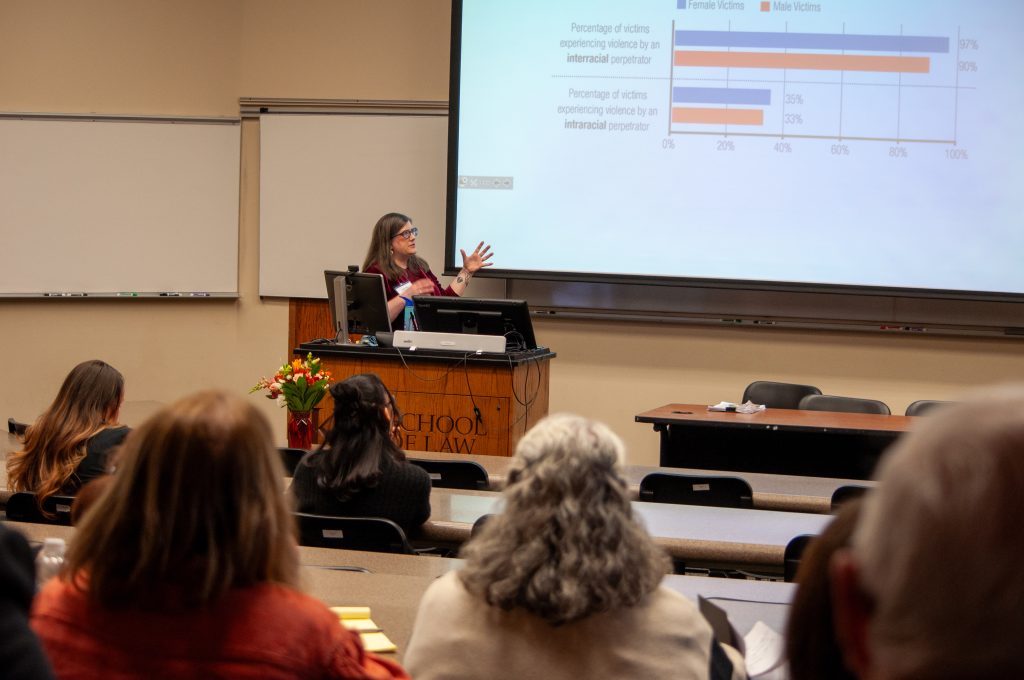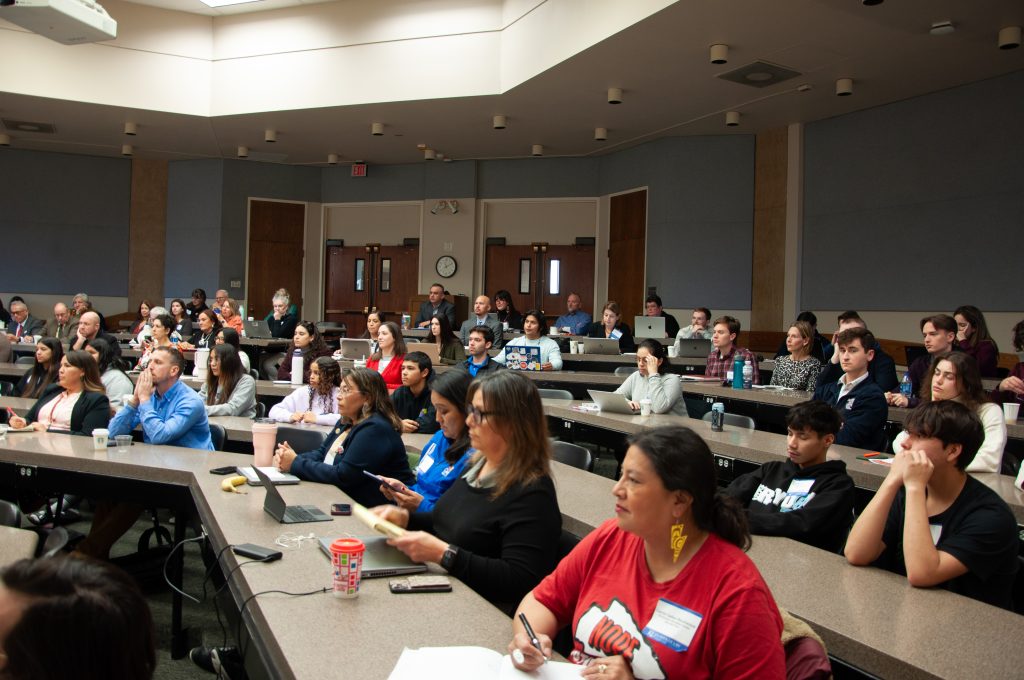
This November, Kansas Law Review co-hosted a symposium with the Tribal Law & Government Center on “Strategic Litigation Advancing Indigenous Rights.” The symposium featured scholars and advocates from across the country who presented on how indigenous communities have used legal action to protect their rights and sovereignty. For example, Sarah Deer, a University Distinguished Professor, presented her research on legal avenues for combatting sexual violence against Indigenous women on reservations.
The Kansas Law Review hosts a symposium each year that focuses on a specific area of law, and the symposium is primarily organized by the students on the board of the Law Review. The 3L Symposium Editor, this year, Emma Leonard, has the primary task of organizing the event, including coordinating all invited speakers, planning the entire day and eventually serving as editor for the volume in which the scholars’ research will be published. Other Law Review members assist with tasks leading up to the symposium and contribute to editorial work for the published volume.
The symposium is an excellent example of the great experience students get from working as a Kansas Law Review or Kansas Journal of Law & Public Policy editor. The Journal of Law & Public Policy also hosts an annual symposium which will take place in spring 2025. Working on either publication is a great opportunity to get exposed to important research that legal scholars and advocates are doing.
Students interested in participating in the Law Review or the Journal of Law & Public Policy must complete a “write-on” competition after their 1L year. Students are given about two weeks to complete a scholarly paper that exemplifies their legal writing skills, which will be important to their work as an editor. Current members of the board of each publication then anonymously review the papers to select next year’s staff editors.
It can be a difficult process to complete immediately after you finish your first year of law school, but it is definitely worth it! Students interested in participating will get plenty of notice during their spring semester on both the competition itself and the role of working as a staff editor. The role primarily entails writing your own scholarly paper called a “comment” and editing the research articles of legal scholars set to be published.
As a current staff editor for Kansas Law Review, this has been my favorite “extracurricular” thus far in law school. It has helped me improve my legal writing, get exposed to new areas of research and has also helped me get to know other students who I would not have otherwise met.
– Madi Stapleton is a 2L KU Law Student Ambassador from Olathe, Kansas

